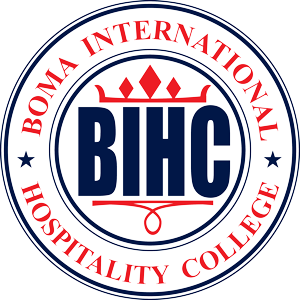
The UNESCO-UNEVOC International Centre: Who We Are | What We Do | Working With Us | Get in Touch
The UNEVOC Network: Learn About the Network | UNEVOC Network Directory
For Members: UNEVOC Centre Dashboard
Thematic Areas: Inclusion and Youth | Digital Transformation | Private Sector Engagement | SDGs and Greening TVET
Our Key Programmes & Projects: BILT: Bridging Innovation and Learning in TVET | Building TVET resilience | TVET Leadership Programme | WYSD: World Youth Skills Day
Past Activities: COVID-19 response | i-hubs project | TVET Global Forums | Virtual Conferences | YEM Knowledge Portal
Our Services & Resources: Publications | TVET Forum | TVET Country Profiles | TVETipedia Glossary | Innovative and Promising Practices | Toolkits for TVET Providers | Entrepreneurial Learning Guide
Events: Major TVET Events | UNEVOC Network News

Since its kick-off meeting on 17 March 2023, the BILT Expert Group on the dual transition in the hospitality and tourism sector has held four partner meetings, including one hybrid session on the first day of the BILT bridging conference on TVET for hospitality and tourism: Solutions for the digital and green transition.
During the event, which was held at Temasek Polytechnic in Singapore from 26 to 28 June, the Expert Group presented preliminary results of their work to the TVET community on-site and online. This included a summary of current green and digital trends in the hospitality and tourism sector and the skills needs arising from them.
Digital trends revolve around new technologies and the use thereof which can be structured into three categories:
New green and digital skills are necessary to keep up with technological and regulatory changes, to address climate change and to satisfy the needs of the 21st century customer. TVET can support the dual transition in the hospitality and tourism sector by providing new competencies (i.e. knowledge, skills and attitudes) related to new or adapted processes, materials, tools and offers.
Another dimension is the different contexts a skill needs to be applied in, ranging from similar situations to everchanging environments. This illustrates why transversal skills, such as creative thinking, problem solving, transdisciplinary thinking, adaptability and learning agility have gained prominence next to technical skills.
The BILT bridging conference also served as an opportunity to introduce the recommendations structured according to the Three I’s approach. For the identification and integration of new green and digital skills, the members of the Expert Group highlighted the importance of industry involvement to better understand which competencies are needed in the world of work.

New skills and competencies should also be generic to remain valid for a longer duration despite rapid technological change. There should be sufficient room for TVET providers to create their own training programmes and address local needs.
Participants of the conference also learned about six innovative practices from Africa, Asia-Pacific and Europe, that had been selected from over 30 submissions by the members of the BILT Expert Group. The innovative practices highlighted ways in which TVET providers implement green and digital skills, thus supporting learners and workers in developing the relevant new competencies – be it through initial training or lifelong learning.
In the upcoming months, the Expert Group will continue working on a synthesis report. With inputs from the three BILT regions, the report will give an overview of skills needs that arise from the green and digital transformation in the tourism and hospitality sector and how they can be tackled by macro, meso or micro level stakeholders of the TVET system. The report will include several examples of innovative practices.
If you wish to learn more or contribute to the work of the BILT Expert Group, please contact us at unevoc.bilt(at)unesco.org or follow UNESCO-UNEVOC on Twitter![]() and LinkedIn
and LinkedIn![]() .
.
with support of EHT, Cambodia, and BIHC, Kenya, as Co-Leads
 |  |